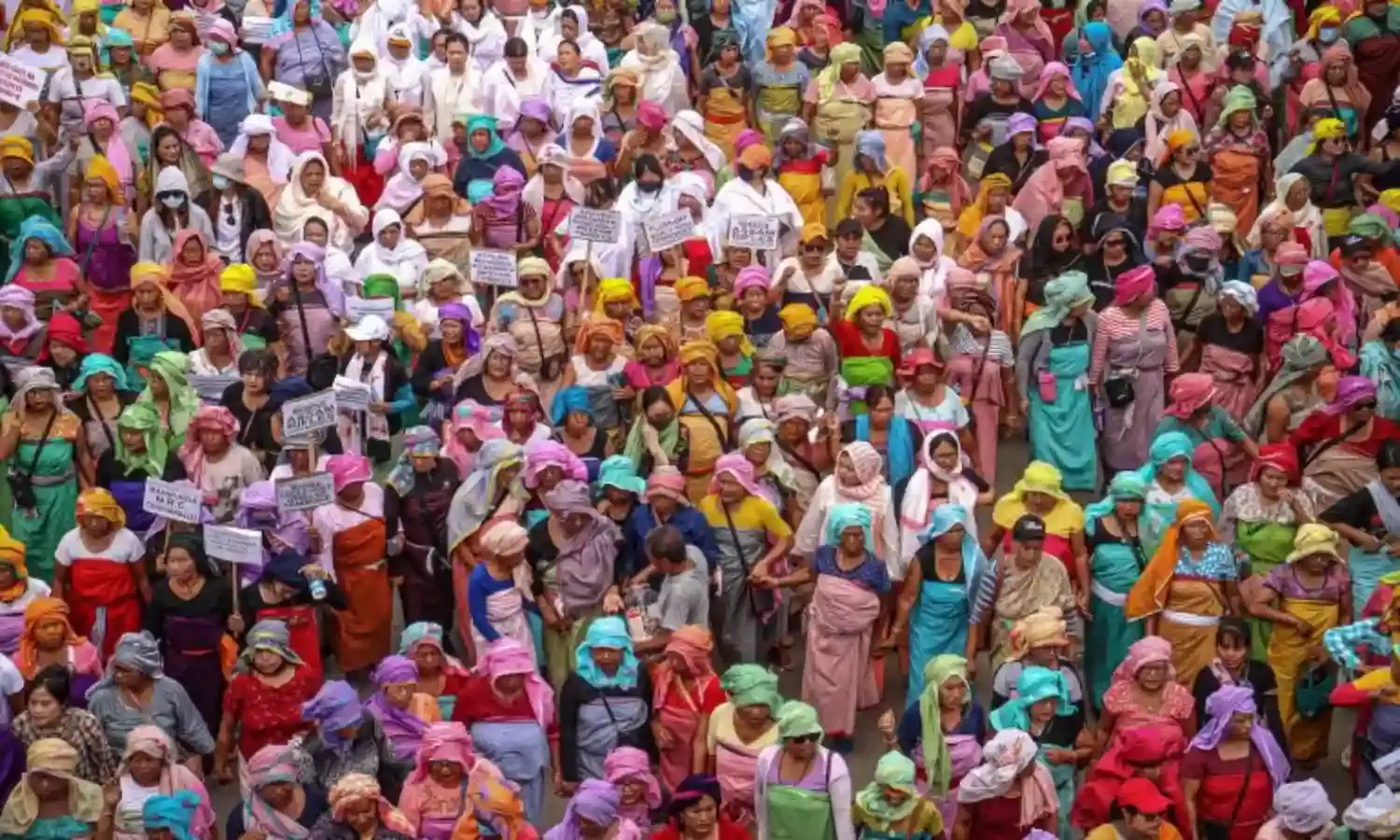In Manipur The Engines Have Broken Down
Adverse impact on the country’s well being;

While a 'double engine' helps in smooth running of the train, it also can take a heavier load but it does not seem to work in the case of Manipur. Here one engine has caught fire and the second does not start.
The ethnic violence in Manipur has been going on for over 100 days and there appears to be no effective means deployed to control the situation. Over 150 have been killed and thousands rendered homeless.
Hundreds of churches, and thousands of dwelling units burnt down. Police armouries have been looted and hundreds of weapons and ammunition taken away by rampaging mobs. Women have been targeted in most horrendous ways.
The two main communities in Manipur are Meitie and Kukis: the former live in the valley, and the latter in the hilly areas. In the past there have been some violence between these communities, but never at a scale now taking place. Weapons plundered from police armouries have been extensively used.
The Manipur government is dominated by Meities and has been following policies that discriminate against the Kukis, including forced evictions and attempts to cast them as illegal immigrants.
The situation took an ugly turn when the court's ruling in March granted majority Meiteis “scheduled tribal status”, entitling them to the same economic benefits and quotas in government jobs and education as the minority Kukis. It also allowed Meiteis to buy land in the hills, mainly owned by Kukis, which led to fears that their lands, jobs and opportunities would be taken away.
In the ongoing violence in Manipur, the state government and the police are seen to be, not just a silent spectator, but in fact supporting Meiteis.
If one examines large scale communal riots that have taken place in the country, after independence, be it 1984 anti Sikh riots in Delhi, 2002 anti Muslim riots in Gujarat, eviction of Pandits from the valley in 199o, now in Manipur and Nuh in Haryana, governments be it state or central, their involvement run like a warp thread in India’s tapestry of so called communal harmony.
In spite of state police failure to control the situation for over three months, and the fact that the state government has not called the military to take control, points to its complicity and tacit support of the rioters.
When the military is called, it must be given free hand to control the situation otherwise it can be a mere eye-wash as it was during the anti-Sikh riots in Delhi, where troops were not given ammunition for their weapons and other restrictions imposed on them.
I was the Corps Commander in Jammu when Pandits were being targeted and evicted from Kashmir Valley. As the first batch of Pandits arrived in Jammu, it created palpable unrest in the town.
There was Governor’s rule in the state so I went across and met Governor Jagmohan, and impressed upon him the imperatives of controlling the situation in the Valley. If the police cannot handle the situation in the Valley then hand it over to the Army.
I narrated to him the situation in the Valley when the Holy relic was found missing from the Hazratbal Mosque. A crowd of nearly half a million had arrived in Srinagar town and they set on fire the Tehsil Headquarters, police station, Chief Minister’s five star hotel under construction, and fire brigade vehicles, and continued with large scale destruction of government property.
That evening the town of Srinagar was handed over to the Army, which immediately deployed troops in the town. Thereafter the town of Srinagar was under the control of the military for the next three days and no untoward incident, what-so-ever, took place in the town.
Jagmohan patiently heard me out but did nothing, yes absolutely nothing and that trickle of Pandits arriving in Jammu became a torrent.
The fabric of India’s communal harmony is being shredded, which in the long term, will have an adverse effect on the country’s well being.
Continuing lawlessness in Manipur has not only been badly handled but in addition mirrors state government’s inefficiency, perhaps involvement and disinterest or tacit approval from the Centre. By now the state government should have been dismissed and Governor’s rule imposed and the military deployed.
The prevalent inaction and complicity on the part of e the Central government does not augur well for the country’s well being. The police has been accused of siding with Meiteis, not filing FIR’s and not arresting those involved in serious crimes such as murder, rape and setting fire to villages etc.
It wasn’t until the video of Kuki women being stripped naked, paraded and assaulted and allegedly gang-raped went viral that the police arrested four Meitei men – more than 70 days after the crime took place.
The Supreme Court chastised the government for its failure to control the situation and the Chief Justice D. Chandrachud impressed upon the government to take control and the goings on in Manipur are simply unacceptable. Yet inaction prevails.
During the No Confidence Motion in Parliament on lawlessness in Manipur, the Prime Minister, in his two-hour speech could spare just about five minutes on the situation in Manipur and what was being done, if at all, to control and extinguish the fire in one of the two engines. Perhaps the government wants this engine to burn out.
Lt General HARWANT SINGH (Retd) is an Indian Army veteran. Views expressed are the writer’s own.
Cover Photograph: A rally for peace in Imphal -AFP Files.

